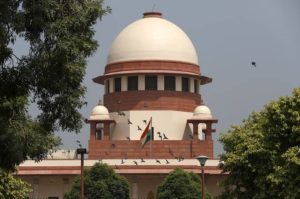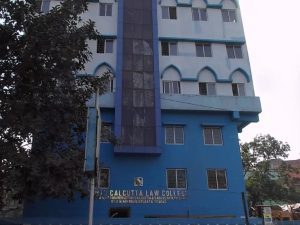Chirag Paswan Demands President Rule – Lok Janshakti Party (Ram Vilas) chief and Union Minister Chirag Paswan has stirred the national political landscape with his demand for the imposition of President’s Rule in West Bengal. This comes in the wake of the alleged gang rape of a female law student in Kolkata and a series of violent incidents during local elections across the state.
Calling the situation in West Bengal “a complete collapse of constitutional machinery,” Paswan said the central government should intervene to safeguard democratic institutions and women’s rights. His statement has fueled further political debate over the governance model in the state and the use of Article 356 of the Constitution.
The Trigger: Gang Rape of Kolkata Law Student
The immediate provocation for Paswan’s call was the June 25 gang rape of a 24-year-old student of South Calcutta Law College. The incident reportedly occurred on campus premises, where the survivor was confined inside a guard room and sexually assaulted by four men, including a former student leader and the security guard.
The accused allegedly filmed the act to blackmail the victim. The crime has shocked the city and the country, especially because the institution involved is a prominent law college in Kolkata. All four accused have been arrested. The investigation is ongoing under the supervision of senior police officials, while forensic evidence and CCTV footage have been collected.
Chirag Paswan’s Statement and Rationale
Chirag Paswan stated that incidents like the law college gang rape are not isolated but are part of a larger breakdown in West Bengal’s law-and-order system.
“What happened to that young student is a horrific example of what West Bengal has become. This is not a political demand; this is a constitutional necessity. The central government must take control and ensure citizens are safe.”
Paswan also referred to recent post-poll violence, allegations of voter intimidation, and attacks on opposition workers during civic and panchayat elections. He added that there is enough cause to believe that the state government has failed in its constitutional obligations.
Understanding President’s Rule: Article 356
President’s Rule refers to the suspension of state government and the imposition of direct control by the central government. It is invoked under Article 356 of the Indian Constitution, which allows the President of India to take over a state’s administration if there is a failure of constitutional governance.
The process involves:
- A Governor’s report suggesting constitutional breakdown.
- Presidential assent followed by parliamentary approval.
- Direct administration by the Centre until elections are held or normalcy returns.
Legal precedent from the S.R. Bommai v. Union of India (1994) case requires strong, demonstrable evidence of failure, and the decision can be judicially reviewed by the Supreme Court.


Other Recent Violence in West Bengal
Chirag Paswan’s demand also comes amid a wider pattern of electoral and political violence in the state:
- Multiple post-poll clashes between political groups were reported from districts like Birbhum, Cooch Behar, and Nadia.
- Opposition candidates have alleged voter suppression and booth capturing in several rural constituencies.
- Reports of attacks on activists, damage to public property, and threats to independent candidates have drawn national attention.
Paswan cited these developments as further proof that the state is not functioning in accordance with constitutional norms.
Reactions from the Political Spectrum
From the Ruling Government
The West Bengal government, led by Chief Minister Mamata Banerjee, has strongly rejected Paswan’s demand, calling it an attempt to interfere in the state’s autonomy. TMC leaders say arrests in the gang rape case were swift, and no political cover has been offered to the accused.
A state government spokesperson said:
“Law enforcement is active. Justice will be served. Demanding President’s Rule is nothing but a politically motivated stunt.”
From Legal and Civil Rights Groups
Civil society groups and legal experts have cautioned against the use of Article 356 without thorough constitutional assessment.
- Some activists argue that central intervention may violate federal principles.
- Others agree with Paswan’s call, citing systemic failure in protecting women and democratic institutions.
Women’s rights collectives in West Bengal have also staged protests demanding stronger security in educational institutions and faster judicial processes in rape cases.
The Constitutional and Political Stakes
The call for President’s Rule carries both legal implications and political weight:
- Legal grounds: The Constitution requires a documented and proven collapse of governance for President’s Rule to be imposed. Any action without sufficient evidence may be struck down by the courts.
- Political impact: With national elections looming in 2026, this issue could realign opposition narratives around women’s safety, governance, and central versus state control.
In the past, the use of Article 356 has been controversial and often criticized as a tool of political vendetta. However, Paswan insists this demand is based not on ideology, but on “national interest and constitutional obligation.”
Chirag Paswan Demands President Rule: What Happens Next?
The central government has yet to officially respond to Chirag Paswan’s demand. If the Union Home Ministry seeks a report from the Governor of West Bengal, it may signal serious consideration.
Meanwhile, the following developments are expected:
- Investigation Updates: Police will likely file a chargesheet soon in the Kolkata gang rape case.
- Parliamentary Debates: BJP leaders may raise the demand in Parliament’s monsoon session.
- Judicial Oversight: The Calcutta High Court may intervene to monitor the progress of the investigation.
- NGO and Activist Mobilization: Advocacy groups are pushing for institutional reforms in college security, survivor protection, and gender-sensitive policing.
Urgent Policy Recommendations
In light of the rising concerns, several policy recommendations have been made by civil rights groups, educational leaders, and public safety experts:
- Mandatory Security Audits in educational institutions
- Fast-track Courts for campus-related sexual violence
- State-Level Commissions to monitor electoral violence
- Training of Police Personnel in gender-sensitization and impartial response
- Transparency Measures for public access to action-taken reports in sensitive cases
Chirag Paswan’s call for President’s Rule in West Bengal has added a new dimension to the already tense political climate in the state. Whether or not the central government acts on this demand, the situation has spotlighted serious concerns around women’s safety, democratic integrity, and federal governance.
The Kolkata gang rape has become more than a criminal case—it has become a symbolic flashpoint, triggering questions about political accountability, public trust, and constitutional responsibility in India’s largest democracy.
External Resources:
- Ministry of Home Affairs, Government of India
- National Human Rights Commission of India
- Ministry of Law and Justice
- National Commission for Women
- Indian Constitution – Article 356 Explained
Also read: Home | Channel 6 Network – Latest News, Breaking Updates: Politics, Business, Tech & More


